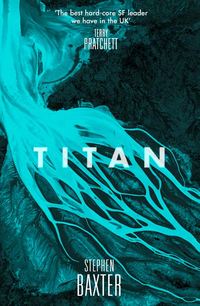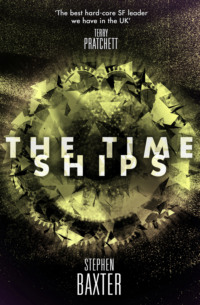
Полная версия
Origin
‘You got washed out this time. That doesn’t mean you won’t fly again. A lot of crew are flying past your age.’ That was true, of course, partly because NASA was having such difficulty finding willing applicants from younger generations.
But Malenfant growled, ‘It’s that asshole Bridges. He even called me into the JSC director’s office to explain the shafting. That fucking horse holder has always had it in for me. This will be the excuse he needs to send me to purgatory.’
Emma knew whom he meant. Joe Bridges was the director of flight operations – in effect, in NASA’s Byzantine, smothering internal bureaucracy, in charge of astronaut selection for missions.
Malenfant was still muttering. ‘You know what Bridges offered me? ASP.’
Emma riffled through her mental file of NASA acronyms. ASP: Astronaut Support Personnel, a non-flying astronaut assigned to support the crew of a mission.
‘I’d have been point man on STS-194,’ Malenfant spat. ‘The Caped Crusader. Checking the soap dispensers in the orbiter john. Strapping some other asshole into my seat on the flight deck.’
‘I gather you didn’t take the job,’ Emma said dryly.
‘I took it okay,’ he snapped. ‘I took it and shoved it sideways up that pencil-pusher’s fat ass.’
‘Oh, Malenfant,’ she sighed.
She tried to imagine the meeting in that rather grand office, before a floor-to-ceiling office window with its view of the park-like JSC campus, complete with the giant Saturn V Moon rocket lying there on its side as if it had crashlanded beside the driveway. Even in these days of decline, there were too few seats for too many eager crew-persons, so – in what seemed to Emma his own very small world – Bridges wielded a great deal of power indeed.
She had never met this man, this Bridges. He might be an efficient bureaucrat, the kind of functionary the aviator types would sneer at, but who held together any major organization like NASA. Or perhaps this Bridges transcended his role; perhaps he was the type who had leveraged his position to accrete power beyond his rank. With the gifts at his disposal, she thought, he might have built up a network of debtors in the Astronaut Office and beyond, in all the places in NASA’s sprawling empire ex-astronauts might reach.
Well, so what? Emma had encountered any number of such people in her own long, complex and moderately successful career in the financial departments of high-tech corporations. No organization was a rational place. Organizations were bear pits where people fought for their own projects, which might or might not have something to do with the organization’s supposed mission. The wise person accepted that, and found a way to get what she wanted in spite of it all.
But to Malenfant – Malenfant the astronaut, an odd idealist about human behaviour, always a loner, always impatient with the most minimal bureaucracy, barely engaged with the complexities of the world – to Malenfant, Joe Bridges, controlling the most important thing in his entire life (more important than me, she thought) could be nothing but a monster.
She stared out the window at the baked African plain. It was huge and ancient, she thought, a place that would endure all but unchanged long after the little white moth that buzzed over it today was corroded to dust, long after the participants in this tiny domestic drama were mouldering bones.
Now she heard a whisper from the ground-to-air radio. It sounded like Bill London, good old bullshitter Bill from Annapolis, with some garbled report about UFOs over central Africa.
The plane veered to the right, and the rising sun wheeled around the cockpit, sparking from scuffs in the Plexiglas around her.
‘Let’s go UFO-hunting,’ Malenfant snapped. ‘We got nothing better to do today, right?’
She wasn’t about to argue; as so often in her relationship with Malenfant she was, literally, powerless.
Fire:
Stone and Blue put branches into the fire. Leaves and twigs burn. Stone and Blue pull out the burning branches. Their legs carry them into the wood. Small animals squeal and run before the fire. Stone and Blue pursue, their eyes darting, their hands hurling rocks and bits of wood.
Fire’s hands are very red and raw.
Dig comes to him. Water is in her mouth. The water spills on his hands. The water is cool. Dig has leaves. Her hands rub them on his burns.
Fire has no name. Sing is huge and smiling. Sing’s hands rub his palms with leaves.
Fire has his name again. It is Dig who tends his burned hands, smiling.
‘Blue light!’ he shouts, suddenly.
Dig looks at him. Her eyes narrow. She tends his hands.
Fire’s hand reaches out. It cups one conical breast. The breast is hot in his hand.
The fire is hot in his hand. A captured bat is hot in his hand.
His member does not rise. Dig tends his hands.
Blue and Stone return. Their hands carry rabbits. The rabbits are skinned. There is blood on the mouths of the men. The rabbits fall to the ground.
The children with no names fall on the rabbits. They jabber, snapping at each other. The children’s small faces are bloody. The adults push the children aside, and growl and jostle over the rabbits. All the people work at the meat, stealing it from each other.
Grass and Cold throw some pieces of meat on the fire. The meat sizzles. Their hands pick out the meat. Their mouths chew the burned meat, swallowing some. Fire sees that their mouths want to swallow all the meat. But their fingers take meat from their mouths. They put the meat in the mouths of their babies with no names.
Sing groans. She is on the ground near the branches. Her nose can smell the food. Her hands can’t reach it.
Fire is eating a twisted-off rabbit leg. His hands pluck meat off it, and put the meat in Sing’s mouth.
Her head turns. Her mouth chews. Her eyes are closed. She chokes. Her mouth spits out meat.
Fire’s hands pop the chewed meat in his mouth.
Sing is shivering.
Fire thinks of a bower.
There are branches here, on the ground. He has forgotten that they were used to transport Sing. He keeps thinking of the bower.
He makes his hands lay the branches on the ground. He thinks of twigs and grass and leaves. He gathers them, thinking of the bower. He makes his hands pile everything up on the branches.
He makes his arms pick up Sing.
It is sunny. He has no name. Sing is carrying Fire. Sing is large, Fire small.
It is dark. His name is Fire. Fire is carrying Sing. Fire is large, Sing shrunken.
He lays her on the crude bower. She sinks into the soft leaves and grass. The branches roll away. The grass scatters. Sing falls into the dirt, with a gasp.
Fire hoots and howls, kicking at the branches.
One of the branches is lodged against a rock. It did not roll away.
Fire makes his hands gather the branches again. He puts the branches down alongside the rock he found. His hands pile up more grass. At last he lowers Sing on the bower. The branches are trapped by the rocks. They do not roll away.
Sing sighs.
Every day he makes a bower for Sing. Every day he forgets how he did it before. Every day he has to invent a way to fix it, from scratch. Some days he doesn’t manage it at all, and Sing has to sleep on the dirt, where insects bite her.
She sings. Her voice is soft and broken. Fire listens. He has forgotten the rocks and the branches.
She stops singing. She sleeps.
People are sleeping. People are huddled around the children. People are coupling. People are making water. People are making dung. People are chattering, for comfort, through rivalry.
Beyond the glow of the flames, the sky is dark. The land is gone. Something howls. It is far away.
Dig is sleeping near the fire.
Fire’s legs walk to her. His hand touches her shoulder. She rolls on her back. She opens her eyes and looks at him.
His member is stiff.
‘Hoo! Fire!’
It is Loud. He is on the ground. Fire’s eyes had not seen him. Fire’s eyes had seen only Dig.
Loud’s hands throw red dirt into Fire’s eyes. Fire blinks and sneezes and hoots.
Loud has crawled to Dig. His hands paw at her. His tongue is out, his member hard. Her hands are pushing him away. She is laughing.
Fire’s hands grab Loud’s shoulders. Loud falls off Dig and lands on his back. He pulls Fire to the ground and they roll. Fire feels hot gritty dirt cling to his back.
Stone roars. His scar shines in the fire light. His filth-grimed foot separates them with a shove. His axe clouts Loud on the head. Loud howls and scuttles away.
Stone’s axe swings for Fire. Fire ducks and scrambles back.
Stone grunts. He moves to Dig. Stone’s big hand reaches down to her, and flips her onto her belly.
Dig gasps. She pulls her legs beneath her. Fire hears the scrape of her skin on red dust.
Stone kneels. His hands push her legs apart. She cries out. He reaches forward. His hands cup her breasts. His member enters her. His hands clutch her shoulders, and his flabby hips thrust and thrust.
He gives a strangled cry. His back straightens. He shudders.
He pulls back and stands up. His member is bruised purple and moist. He turns. He kicks Fire in the thigh. Fire yells and doubles over.
Dig is on the ground, her hands tucked between her legs. She is curled up.
Loud is gone.
Fire’s legs walk.
Fire stops.
Dig is far. The fire is far. He is in a mouth of darkness. Eyes watch him.
He makes his legs walk him back to the fire.
Sing is lying on a bower. He has forgotten he made the bower. Her eyes watch him. Her arm lifts.
He kneels. His face rests on her chest. The bower rustles. Sing gasps.
Her hand runs over his belly. Her hand finds his member. It is painfully swollen. Her hand closes around it. He shudders.
She sings.
He sleeps.
Emma Stoney:
If this really was the close of Malenfant’s career at NASA, Emma thought, it could be a good thing.
She wasn’t the type of foolish ground-bound spouse who palpitated every moment Malenfant was on orbit (although she hadn’t been able to calm her stomach during those searing moments of launch, as the Shuttle passed through one of NASA’s ‘non-survivable windows’ after another …). No, the sacrifices she had made went broader and deeper than that.
It had started as far back as the moment when, as a new arrival at the Naval Academy, he had broken his hometown girl’s seventeen-year-old heart with a letter saying that he thought they should break off their relationship. Now he was at Annapolis, he had written, he wanted to devote himself ‘like a monk’ to his studies. Well, that had lasted all of six months before he had started to pursue her again, with letters and calls, trying to win her back.
That letter had, in retrospect, set the course of their lives for three decades. But maybe that course was now coming to an end.
‘You know,’ she said dreamily, ‘maybe if it is ending, it’s fitting it should be like this. In the air, I mean. Do you remember that flight to San Francisco? You had just got accepted by the Astronaut Office …’
It had been Malenfant’s third time of trying to join the astronaut corps, after he had applied to the recruitment rounds of 1988 – when he wasn’t even granted an interview – and 1990. Finally in 1992, aged thirty-two, he had gotten an interview at the Johnson Space Center in Houston, and had gone back to his base in San Diego.
At last the Astronaut Office had called him. But he was sworn to secrecy until the official announcement, to be made the next day. Naturally he had kept the secret strictly, even from Emma.
So the next day they had boarded a plane for San Francisco, where they were going to spend a long weekend with friends of Emma’s (Malenfant tended not to have the type of friends you could spend weekends with, not if you wanted to come home with your liver). Malenfant had given the pilot the NASA press release. Just after they got to cruise altitude, the pilot called Emma’s name: Would Emma Malenfant please identify herself? Would you please stand up?
It had taken Emma a moment to realize she was being called, for she used her maiden name, Stoney, in business and her personal life, everywhere except the closed world of the Navy. Baffled – and wary of Malenfant’s expressionless stillness – she had unbuckled her seat belt and stood up.
I hope you like barbecue, Ms Malenfant, said the pilot, because I have a press release here that says you are going to Houston, Texas. Commander Reid Malenfant, US Navy, has been selected to be a part of the 1992 NASA astronaut class.
‘… And everybody on the plane started whooping, just as if you were John Glenn himself, and the stewards brought us those dumb little plastic bottles of champagne. Do you remember, Malenfant?’ She laughed. ‘But you couldn’t drink because you were doubled over with air sickness.’
Malenfant grunted sourly. ‘It starts in the air, so it finishes in the air. Is that what you think?’
‘It does have a certain symmetry … Maybe this isn’t the end, but the beginning of something new. Right? We could be at the start of a great new adventure together. Who knows?’
She could see how the set of his shoulders was unchanged.
She sighed. Give it time, Emma. ‘All right, Malenfant. What UFOs?’
‘Tanzania. Some kind of sighting over the Olduvai Gorge, according to Bill.’
‘Olduvai? Where the human fossils come from?’
‘I don’t know. What does that matter? It sounds more authentic than most. The local air forces are scrambling spotter planes: Tanzania, Zambia, Kenya, Mozambique.’
None of those names was too reassuring to Emma. ‘Malenfant, are you sure we should get caught up in that? We don’t want some trigger-happy Tanzanian flyboy to mistake us for Eetie.’
He barked laughter. ‘Come on, Emma. You’re showing your prejudice. We trained half those guys and sold the planes to the other half. And they’re only spotters. Bill is informing them we’re coming. There’s no threat. And, who knows? Maybe we’ll get to be involved in first contact.’
Under his veneer of cynicism she sensed an edge of genuine excitement. From out of the blue, here was another adventure for Reid Malenfant, hero astronaut. Another adventure that had nothing to do with her.
I was wrong, she thought. I’m never going to get him back, no matter what happens at NASA. But then I never had him anyhow.
Losing sympathy for him, she snapped, ‘You really told Joe Bridges to shove his job?’
‘Sweetest moment of my life.’
‘Oh, Malenfant. Don’t you know how it works yet? If you took your punishment, if you sweated out your time, you’d be back in rotation for the next assignment, or the one after that.’
‘Bullshit.’
‘It’s the way of the world. I’ve had to go through it, in my own way. Everybody has. Everybody who wants to get on in the real world, with real people, anyhow. Everybody but you, the great hero.’
‘You sound like you’re writing my appraisal,’ he said, a little ruefully. ‘Anyhow, ass-kissing wouldn’t have helped. It was the Russians, that fucking Grand Medical Commission of theirs.’
‘The Russians scrubbed you?’
‘It was when I was in Star City.’
Star City, the Russian military base thirty miles outside Moscow that served as the cosmonauts’ training centre.
‘Malenfant, you got back from there a month ago. You never thought to tell me about it?’
Through two layers of Plexiglas, she could see him shrug. ‘I was appealing the decision. I didn’t see the point of troubling you. Hell, Emma, I thought I would win. I knew I would. I thought they couldn’t scrub me.’
Far off, to left and right, she saw contrails and glittering darts. Fighter planes, perhaps, converging on the strange anomaly sighted over Olduvai, whatever it was, if it existed at all.
She felt an odd frisson of anticipation.
‘It took them a morning,’ Malenfant said. ‘They brung in a dozen Russian doctors to probe at my every damn orifice. A bunch of snowy-haired old farts with pubic hair growing out of their noses, with no experience of space medicine. They ought to have no jurisdiction over the way we run our programme.’
‘It’s their programme too,’ she said quietly. ‘What did they say?’
‘One of them pulled me up over my shoulder.’ Malenfant suffered from a nerve palsy behind his right shoulder, the relic of an ancient football injury, a condition NASA had long ago signed off on. ‘Well, our guys gave them shit. But the fossil stood his ground.
‘Then they took me into the Commission itself. I was sat on a stage with the guy who was going to be my judge, in front of an auditorium full of white-haired Russian doctors, and two NASA guys who were as mad as hell, like me. But the old asshole from the surgical group got up and said my shoulder was a “disqualifying condition” that needed further tests, and our guys said I wasn’t going to do that, and so the Russians said I was disqualified anyhow …’
Emma frowned, trying to puzzle it out. It sounded like a pretext to her; Malenfant had after all flown twice to the Station before, and the Russians must have known all about his shoulder, like everything else about him. Why should it suddenly become a mission-threatening disability now?
Malenfant put the little jet through a gut-wrenching turn so tight she thought she heard the hull creak. ‘I knew we’d appeal,’ he said. ‘Those two NASA surgeons were livid, I’m telling you. They said they’d pass it all the way up the line, I should just get on with my training as if I was planning to fly, they’d clear me through. Hell, I believed them. But it didn’t happen. When it got to Bridges –’
‘Was your shoulder the only thing the Russians objected to?’
He hesitated.
‘Malenfant?’
‘No,’ he said reluctantly. ‘They smuggled shrinks’ remarks into their final report to NASA. They should have presented them at the Commission … Hey, can you see something? Look, right on the horizon.’
She peered into the north. The horizon was a band of dusty, mist-laden air, grey between brown earth and blue sky, precisely curving. Was something there? – a spark of powder-blue, a hint of a circle, like a lens flare?
But the day was bright, dazzling now the sun was climbing higher, and her eyes filled with water.
She sat back in her seat, and her various harnesses and buckles rustled and clinked around her, loud in the tiny cockpit. ‘What did it say, Malenfant? The Russian psych report.’
He growled, ‘“Peculiarities”.’
‘What kind of peculiarities?’
‘In my relations with the rest of the crew. They gave an example about how I was in the middle of a task and some Russkie came over nagging about how we were scheduled to do something else. Well, I nodded politely, and carried right on with what I was doing, until I was finished …’
Now she started to understand. The Russians, who rightly believed they were still far ahead of the West in the psychology of the peculiarly cramped conditions of space travel, placed great collectivist emphasis on teamwork and sacrifice. They would not warm to a driven, somewhat obsessive loner-perfectionist like Malenfant.
‘I should have socialized with the assholes,’ he said now. ‘I should have gone to the cosmonauts’ coldwater apartments, and drunk their crummy vodka, and pressed the flesh with the guys on the gate.’
She laughed, gently. ‘Malenfant, you don’t even socialize at NASA.’
‘My nature got me where I am now.’
Yeah, washed out, she thought brutally. ‘But maybe it’s not the nature you need for long-duration space missions. I guess not everybody forgives you the way I do.’
‘What is that supposed to mean?’
She ignored the question. ‘So the psych report is the real reason they grounded you. The shoulder was just an excuse.’
‘The Russians must have known the psych report would never stand up to scrutiny. If Joe Bridges had got his thumb out of his ass –’
‘Oh, Malenfant, don’t you see? They were giving you cover. If you’re going to be grounded, do you want it to be because of your shoulder, or your personality? Think about it. They were trying to help you. They all were.’
‘That kind of help I can live without.’ Again he wrenched the plane through a savage snap roll.
Her helmet clattered against the Plexiglas, as varying acceleration tore at her stomach, and the brown African plain strobed around her. She was cocooned in the physical expression of his anger.
She glared at the back of Malenfant’s helmeted head, which cast dazzling highlights from the African sun, with a mixture of fondness and exasperation. Well, that was Malenfant for you.
And because she was staring so hard at Malenfant she missed seeing the artefact until it was almost upon them.
Malenfant peeled away suddenly. Once again she glimpsed pale blue-white sky, dusty brown ground, shafts of glowering sunlight – and an arc, a fragment of a perfect circle, like a rainbow, but glowing a clear cerulean blue. Then it fell out of her vision.
‘Malenfant – what was that?’
‘Damned if I know.’ His voice was flat. Suddenly he was concentrating on his flying. The slaved controls in front of her jerked this way and that; she felt remote buffeting, some kind of turbulence perhaps, smoothed out by Malenfant’s skilful handling.
He pulled the jet through another smooth curve, and sky and ground swam around her once more.
And he said, ‘Holy shit.’
There was a circle in the sky.
It was facing them full on. It was a wheel of powder-blue, like a hoop of the finest ribbon. It looked the size of a dinner plate held before her face – but of course it must be much larger and more remote than that.
Emma saw this beyond Malenfant’s head and shoulders and the slim white fuselage. The jet’s needle nose pointed straight at the centre of the ring, so that the wheel framed her field of view with perfect symmetry, like some unlikely optical flare. Its very perfection and symmetry made it seem unreal. She had no idea of its scale – it would seem so close it must be hanging off the plane’s nose, then something in her head would flip the other way and it would appear vast and distant, like a rainbow. She found it physically difficult to study it, as if it was an optical illusion, deliberately baffling; her eyes kept sliding away from it, evading it.
It’s beyond my comprehension, she thought. Literally. Evolution has not prepared me for giant wheels suspended in the air.
Fire:
Water runs down his face.
He is lying on his back. The sky is flat and grey.
Rain falls. His ears hear it tapping on the ground. His eyes see the drops fall towards his face. They are fat and slow. Some of them fall on his face.
Water runs in his eyes. It stings. He sits up.
Fire is sitting on the ground. He is wet. His eyes hurt. His burned hands hurt.
He stands up. His legs walk him towards the trees.
People walk, run, stumble over muddy ground, adults and children. They move in silence, in isolation. Nobody is calling, nobody helping. They are cold and they hurt. They have each forgotten the other people, all save the mothers with their babies with no names. The mothers’ arms carry the infants, sheltering them.
Fire reaches the trees.
The wind changes. His nose smells ash.
He remembers the fire. His legs run back.
The fire is out, drowned by the rain. The back of Fire’s head hurts in anticipation of Stone’s punishing axe.








